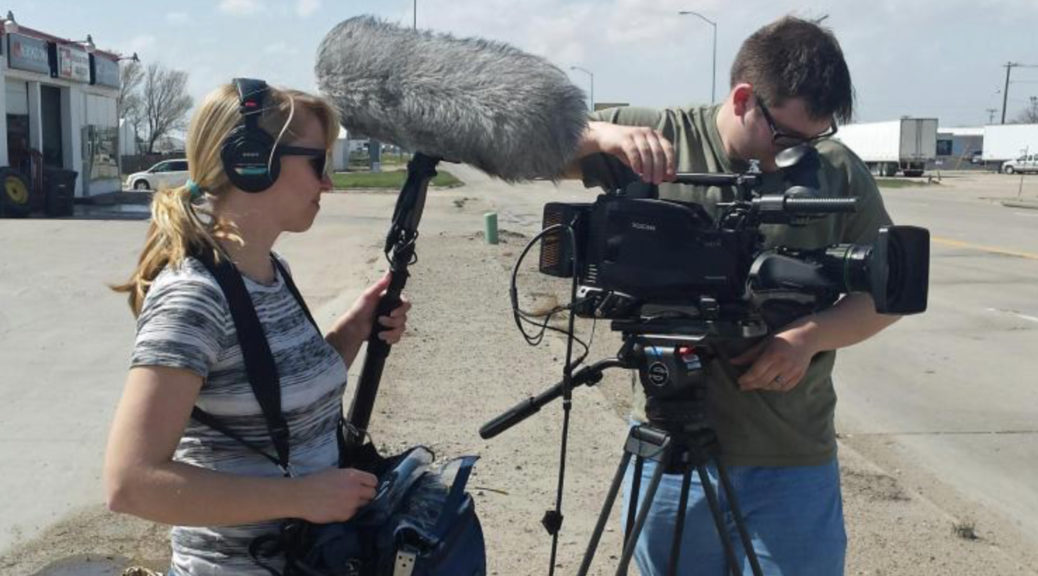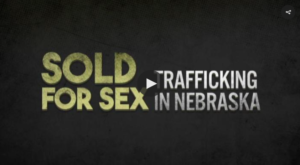Documentary Showcases Efforts to Prevent Human Trafficking in Nebraska

*Photo by NET Nebraska
Human trafficking is on the rise throughout the entire state of Nebraska. Runaway and homeless youth, as well as those who lack a steady supportive network, are among the highest population at risk for trafficking. Children and teens involved in the child welfare system can also face a high risk of being exploited and subjected to human trafficking.
Help Nebraska children and teens in crisis. Learn more about becoming a foster parent today.
A new 30 minute documentary called Sold for Sex: Trafficking in Nebraska focuses on the growing statistics surrounding human trafficking and the efforts being put in place to prevent individuals from being sold for sex. Crysta Price from the Creighton University Human Trafficking Initiative states that Nebraska averages 130 sex workers per day and 800 per month. Last year, there were 30 cases of human trafficking reported in Nebraska, adding to the 116 total victims since 2007. There were 107 calls placed in Nebraska to the National Human Trafficking Hotline, with 14 of those calls from victims and survivors.
Service providers, health care workers and law enforcement officers are increasing efforts to fight human trafficking. These professionals are educating themselves on how to recognize individuals who are being trafficked and increasing resources to help victims of human trafficking.
Watch the 30 minute documentary:
Sold for Sex: Trafficking in Nebraska can be viewed online on NET News until February 14. A second part to the documentary, Sold for Sex: Survivor Stories, premieres February 1.
Prevent Human Trafficking
Know the signs of human trafficking:
You can help vulnerable Nebraska children and youth by recognizing the following signs:
- He/she has physical scars, bruises that they can no explain
- He/she has run away from home and/or has frequent and unexplained school absenses
- He/she is in the commercial prostitution, pornography and/or stripping industry
- He/she endures poor working conditions such as long/unusual hours and is not allowed breaks
- He/she exhibits a lack of medical care, personal hygiene and/or malnourishment
- He/she is not free to come and go as they wish
- He/she owes a large debt and is unable to pay it off
What you can do:
- Report any suspected trafficking to the local authorities and notify the confidential National Human Trafficking Hotline at 1-(888)-373-7888. Tips can also be submitted online.
- Understand that children and teens who have been trafficked are victims. Some of these youth will be scared to get help because they fear punishment or legal problems and some might even deny their situation. As a result, they may be resistant to help.
- Educate yourself on the signs of someone who is being trafficked and the recruiting tactics of predators. Targeting victims has expanded into social media, malls, clubs and even acquaintances. Know the laws surrounding trafficking. For 2016, Nebraska received a grade of B in 41 key legislative areas addressing sex trafficking from The Protected Innocence Challenge. These areas included criminal provisions for traffickers and criminal provisions for facilitators.
- Share what you’ve learned with others! Spread the message on social media to your friends or create an outreach campaign. It can make a huge impact in your community to help raise awareness, educate others and reach out to victims. Here are a few helpful toolkits and guides.
Events:
- National Human Trafficking Awareness Day
- Human Trafficking and Prescription Drug Abuse in Nebraska
- Resource Family Conference training session: Set Me Free Project: Human Trafficking Awareness
If you or a child or teen you know is a victim of human trafficking, call the police or contact the National Human Trafficking Hotline 24/7 at 1-(888)-373-7888 to report a tip or request services.

